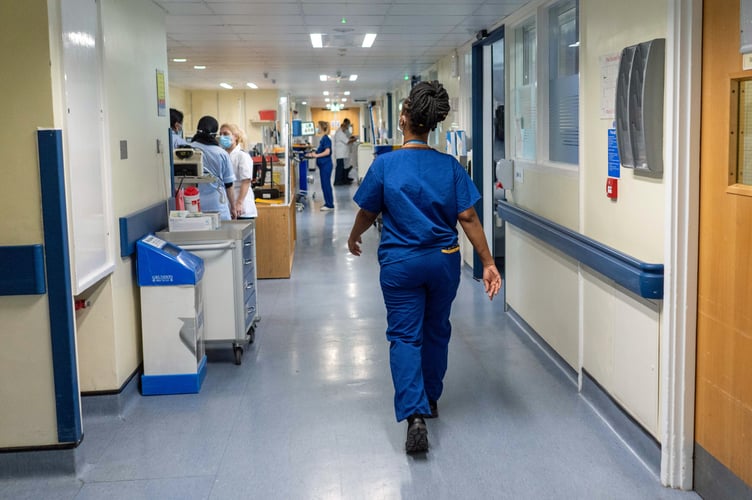Staff turnover in the Portsmouth Hospitals University Trust's cancer workforce fell last year, new figures show – bucking the national trend.
It comes as cancer charities have called on the Government to address high turnover so England has a cancer service "fit for the future".
NHS data shows the turnover rate for Portsmouth Hospitals University NHS Trust cancer workforce was 13%, with 46 staff leaving in the year to September 2022. It's down from 14.2% the year before.
The figures also show the trust recorded a 12.2% joiners rate in 2022, with 43 people entering the workforce.
Across all NHS hospital and community health services, turnover in the cancer workforce reached 12.1% with 4,378 staff leaving last year – the highest rate since at least 2010.
Steven McIntosh, Macmillan Cancer Support executive director of advocacy, warned cancer care is in crisis: "We’re seeing record numbers of cancer care staff leaving the NHS and many coming up to retirement in the next 10 years."
He said: "When are politicians going to start truly listening to the pleas of desperate, overstretched NHS staff and critically ill patients, what are they waiting for? Governments can redress this but only if they act now."
Further analysis by the charity suggests the number of people being seen by a specialist for suspected cancer since 2010 has grown almost four times faster than the number of NHS cancer staff.
While the cancer workforce has grown by 54%, the number of people being seen for suspected cancer has nearly tripled.
In the Portsmouth Hospitals University Trust, the cancer workforce headcount has grown from 262 in 2010 to 351 in 2022.
Meanwhile, the number of people seen for suspected cancer at the trust has grown from an average of 899 people in 2010 to 2,173 in 2022 – more than four times the growth in cancer staff.
Kruti Shrotri, head of policy development at Cancer Research UK, said years of underinvestment in cancer services and a failure to grow the workforce has resulted in high turnover.
She said: "Cancer survival in England lags behind similar countries and cancer waiting targets continue to be missed.
"The solution lies in the hands of the Government who must show leadership and ensure we have a cancer workforce fit for the future."
A Department of Health and Social Care spokesperson said: "The NHS workforce has never been bigger and we have made significant progress in developing and growing the cancer workforce.
"But there is more to do. Our recently published Long Term Workforce Plan, will deliver the biggest training expansion in NHS history, recruit hundreds of thousands more staff and address staff leaving rates, which are already decreasing."
Mr McIntosh said the NHS Workforce Plan for England outlines 'promising' commitments, but it lacks crucial detail around what it will mean longer-term for the cancer workforce and people living with cancer.
He said: "We urgently need to see detailed modelling on the cancer workforce, including details of how the missing roles will be recruited, delivered, and funded."




